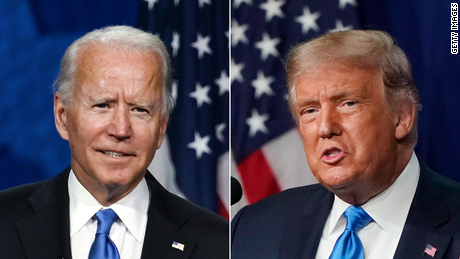
Facebook will limit some advertising in the week before the US election - but it will let politicians run ads with lies
In an attempt to combat efforts to undermine the US presidential election in November, Facebook on Thursday took several steps it says will address concerns about election interference on its platform.
But Facebook will continue to allow politicians to run lies in ads through Election Day.
CEO Mark Zuckerberg announced that the company would not accept new political ads in the final week of the 2020 election campaign. The company will remove posts that claim that people will get Covid-19 if they take part in voting, and it will label misinformation about the election and voting.
The policy reflects Facebook's latest plan for what it acknowledges could be an unusual election. But it only goes so far: Though the limitations on new advertisements will come into force the week before Election Day, many states allow early or mail-in voting that can occur before the policy takes effect.
In another potential loophole, Facebook (FB) will continue to allow campaigns to run ads bought before the final week. Those ads can still run through Election Day. And Zuckerberg made no indication that Facebook would change its policy of allowing politicians to lie in targeted ads, meaning political candidates will be able to run false ads on the platform up until election day.
Zuckerberg said campaigns will be able to keep running ads purchased before the final week of the election -- even if they contain misinformation -- because fact-checkers and journalists will have had ample time to scrutinize them before election day.
"It's important that campaigns can run get out the vote campaigns, and I generally believe the best antidote to bad speech is more speech," Zuckerberg said in a Facebook post.
"But in the final days of an election there may not be enough time to contest new claims."
Facebook's temporary restrictions on political advertising will lift after Election Day, the company told CNN, indicating it does not believe the same preemptive precautions are necessary in anticipation of a chaotic election with ambiguous results.
Zuckerberg said that following the election, Facebook will apply a contextual label to posts by any candidate or campaign that attempt to claim victory before official results are available. The company will rely on results reported by Reuters as well as a coalition of other news organizations known as the National Elections Pool. Separately, Facebook will also apply contextual labels to posts that seek to delegitimize the results, but it is unclear whether either policy will extend to political ads.
